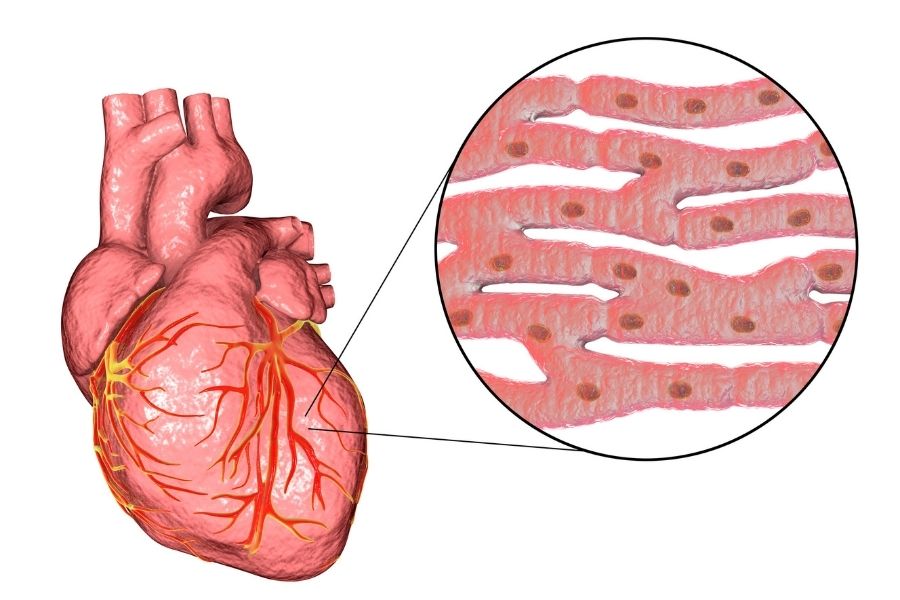What Exercising Does to Our Bodies
This article explains the benefits of exercise, how it increases feelings of happiness, reduces risk factors for disease, and more. The article details how exercise improves brain health and mood, burns calories, lengthen lifespan and enhances quality of life.
Exercise does many things to your body. It increases the number of red blood cells in your bloodstream, boosts your metabolic system by burning fat into energy, and strengthens muscles and bones.
But one thing you might not know that is that exercise also affects our nervous system. These positive changes are really important. Sometimes, when we exercise, our body releases "feel-good" chemicals called endorphins. These endorphins make us feel really good, and they help relieve pain. But the release of endorphins is not the only way that exercise helps you to feel good.
Exercise also helps keep stress down. We all know how hard it is to maintain a good mood when we are stressed out, and when we are under a lot of stress, our bodies don't work as well as they should.
Why Exercise?
Regular exercise can help treat problems like high blood pressure, diabetes, and arthritis. It will also give you more energy and better strength. Exercise also lowers cholesterol levels in the blood and helps to fight off any infections that might have gotten into your body. It also makes you feel more confident as well as happier. You'll be more motivated to lose weight, too, since exercise will help you burn calories and weigh less.
The Muscles
Exercise is important for the proper function of your muscles and body in general. Imagine that you are a car without gas. The muscles are the gas tank of your body. The muscle cells work in teams to provide energy for your body as well as power.
Exercise improves overall muscle size and strength and makes it easier to move and function fully in a day-to-day life.
How do Muscles Work?
Muscles contract, which is the key to producing force. Your muscles contract in order for your body to move and function.
Here's an example of how muscles use contractions to produce force: You are picking up a heavy box. You are trying your best to keep from dropping it. As you bring the box closer to your body, your biceps tighten and shorten, flexing (shortening) above the elbow. This coordinate movement requires your muscles to exert force against the resistance of gravity. When you drop the box, your biceps relax, lengthening above the elbow.
This is a very simple example of how muscles move. Another example would be lifting your leg to cross over a log. As you lift your foot, your quadriceps contract to bend your leg. Then, when you place the foot on the other side of the log, the quadriceps relax.
There are three main types of muscle contractions: concentric, eccentric, and isometric.
Concentric contraction occurs when the muscle shortens and gets stronger as it contracts. What you are trying to do when you lift a weight is concentric contraction. It is the muscle shortening that helps produce force.
The eccentric contraction occurs when the muscle lengthens and takes on a more relaxed position. This can happen when you lower a barbell or any object.
Isometric contraction occurs when the muscle takes on the same length but maintains contact with the load. For example, if you push against something, you will feel it and your muscle will tighten, but there is no movement.
Exercise can increase your ability to perform concentric, eccentric, and isometric contractions by increasing the number, size, and strength of your muscles. That's why exercise means more muscle tone and more strength in the body.
Exercise also makes it easier for the muscles to work together because the muscle cells have greater movement ability than before exercise.
Exercise & Your Heart

Your heart is a muscle and it actually contracts when you exercise! That's why when people talk about having a 'good heart' or a 'healthy heart', it's simply because their hearts can contract and push blood around the body better.
If you're unfit, your heart may be weak and cause problems when you are exercising or if you get stressed. But if you are physically fit, your heart is ready to work at all times! Exercise strengthens the heart so it can beat more effectively.
Exercise and Your Brain
Regular exercise can benefit your brain by helping to keep you fit and healthy. You need your brain for learning and remembering, as well as many other vital functions, and so it is very important in maintaining good health. Also, exercise will help your brain to maintain its abilities by making it more active. When you're not exercising, your brain gets less active, which is why you may experience problems with memory and other important functions.
Other Benefits Exercise Can Bring
Regular exercise can help you to:
- Lower your blood pressure
- Lower your risk for heart disease and stroke
- Lower your risk for high cholesterol and diabetes
- Maintain a healthy body weight
- Reduce chronic pain
There's more:
- Your nervous system and your immune system also benefit from regular exercise
- You'll feel like you have more energy in your life
- Exercise will help you sleep better, reduce stress, and help with arthritis
It's healthier to exercise regularly so that you don't become inactive and then have to work very hard to get started again. It is better to exercise at a level of intensity that keeps you healthy and makes you feel good than to overdo it and injure yourself.
The Nervous and Immune System

When you work your muscles, this, in turn, works your nerves. The nervous system is what sends signals around your body to help you move and think. Exercise can improve the movement of the muscles and joints, which moves your bones, which move your body.
It also means that when you exercise, the brain cells are getting more blood and oxygen, which improves their ability to work more effectively.
Exercise has been shown to reduce stress, improve mood, and increase energy levels - all of which can help management of chronic diseases like rheumatoid arthritis better.
The immune system is an important part of your body that prevents disease from occurring. It's the part of the body that creates antibodies which help you from getting sick by attacking germs in the body, and also to defend against diseases.
As well as regular exercise, your immune system also benefits from a healthy diet and healthy lifestyle overall.
General Wellbeing
We all know that exercising regularly will make us feel better. We should start doing regular exercise to stay fit and healthy. When you exercise, your muscles get all the blood and oxygen that they need, but when you don't exercise regularly, your muscles lose their ability to contract effectively. You may become less flexible and weaker because of lack of exercise, so keep this in mind.
My Last Words

It's never too late - as long as you want to, you can start.
You don't need to exercise a lot to stay healthy. It's just that it's better to do something than do nothing at all. Do your best - but don't give up!
Start exercising and live a long healthy life. Contact me here.


